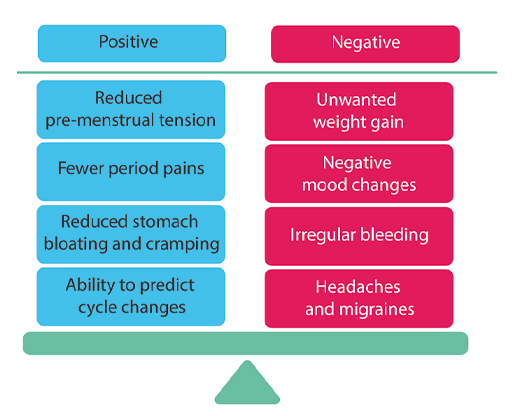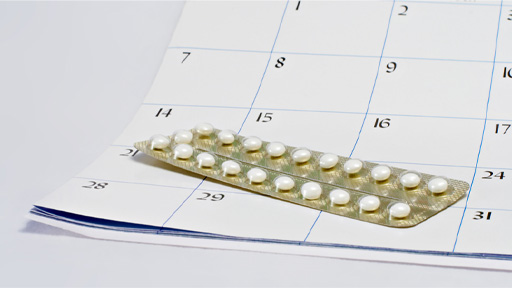3 The impact of hormonal contraception on the female and their menstrual cycle
Oral hormonal contraceptives (the pill) are typically taken over a 28-day period to replicate the length of the idealised menstrual cycle. But there are a variety of different types. Here are some interesting facts you may or may not know.
Did you know?
In some pill preparations this 28-day cycle consists of 21 days when the pills contain synthetic hormones and then 7 placebo pills, which do not contain any synthetic oestrogen or progesterone. During this time when placebo pills are taken, it is common for women to experience what is called a withdrawal bleed.
Did you know that some pill types often lead to no or lighter bleeding?
On the progesterone-only pill, one pill is taken every day for 28 days, but individuals continue straight onto the next 28-day pill packet without a break. About 50% of women find that they don’t bleed at all on this type of contraception, and others have much lighter breakthrough bleeding, because the uterus lining is being kept thin all the time by the effect of the pill.
Older generation progesterone-only pills (also known as the mini pill) have strict criteria where they must be taken within the same 3 hour time slot every day to be effective. However new generation pills have a 12 hour window to take the pill which can be less restrictive and easier to manage if athletes have an unpredictable schedule or lots of travel.
The menstrual cycle is a sign of good fuelling and recovery
For athletes it is really important to understand that the withdrawal bleed experienced by women using hormonal contraception is not a period. Whereas a period can be an indication of good menstrual health, and a healthy menstrual cycle is a sign that athletes are fuelling and recovering well, having a withdrawal bleed cannot offer any of these signs of menstrual health, since the menstrual cycle is suppressed when using hormonal contraception.
The oral contraceptive cycle replaces the menstrual cycle and the symptoms produced by the hormones over a single cycle, but it is not without positive and negative symptoms of its own. Martin et al. (2018) reported roughly equal numbers of positive and negative side effects in hormonal contraceptive users as shown in Figure 2.


